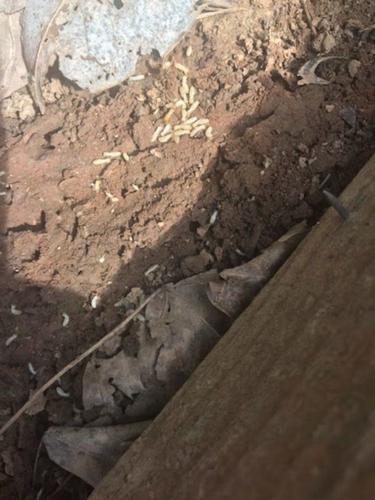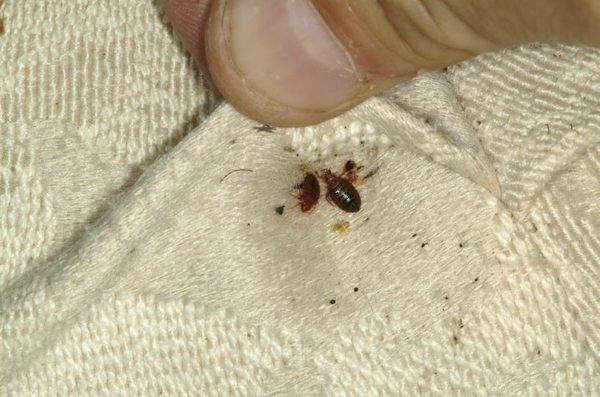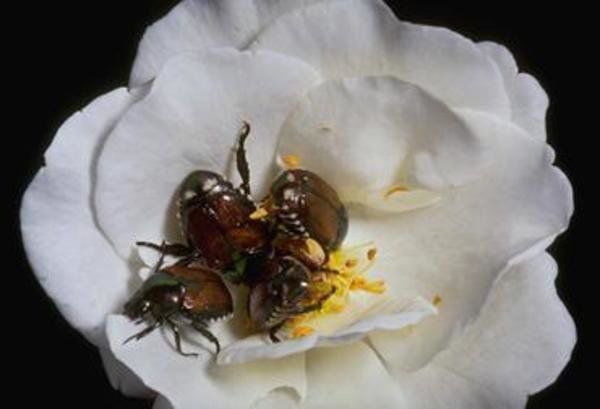EDITOR'S NOTE: This story appeared in The Register's Spring Home & Garden special section that appeared in the Wednesday, April 24, edition. To see more, including content only in the print section, copies are still available at our office.
Spring has sprung in Madison County, and along with the budding veggie plants, flowering fruit trees and homeowners flocking to DIY stores comes a crop of costly terrors — home and garden pests.
Lurking under plant leaves are insidious bugs like aphids and Japanese beetles, while termites, roaches, fleas and bed bugs yearn for a cozier spot inside the house among furniture, on pets and under clutter and cardboard boxes.
There is hope for the weary homeowner, whether you call a professional or do it yourself. Some jobs, like spraying for aphids or picking beetles off your plants are relatively simple to manage. But a case of bed bugs or termites will require help from those expertly trained in eradication.
Danny Cain, owner and operator of Danny’s Termite and Pest Control, has seen and treated nearly every pest known in Central Kentucky in his nearly 60 years of operation serving commercial and residential properties.
He started the business with his father when he was 15 years old, and now serves the Central Kentucky area with his 13 employees.
Cain’s biggest pest concern this spring? Termites.
“Look for termite activity, as they form in March,” he said. “Check mulch for white wingless nymphs, as well as winged ant-like insects in the windows of your house.”
He notes that the winged ones, called swarmers, will often leave holes in walls and doors. A termite infestation can cost between $600 and $1,000 to remove.
Cain warns that carpenter ants are also swarming now, and crooked pest control companies will sell termite treatment for ants. If you aren’t sure which pest you have, Cain says you can save time and money by texting him a picture of the pest. “People send me about 100 pictures a day,” he said.
Another Central Kentucky pest issue is bedbugs, and as folks head into vacation season, there are many opportunities to pick up the tiny hitchhikers on their travels. Cain recommends taking an extra set of clothes in a sealed bag when traveling to change into upon your return. Then bag your suitcases, bags and all clothes up before you head home. Once home, dump them right into your dryer to kill bedbugs and use an over the counter bedbug spray on your suitcases and bags.
And don’t panic if you do have an infestation, as Cain says treatment is more effective and less costly than before.
“It used to cost $250 to $500 to treat an average house for bedbugs,” Cain said. “But now we can hit the mattresses, baseboards and furniture with a conventional spray usually in one treatment for $250, and $75 for a second if necessary."
Those who want to play it safe against all pests can get an inside and outside perimeter spray for $125 that takes just 30 minutes to apply and deters general pests like spiders, ants, millipedes, and centipedes.
“Over the winter everything comes out, it doesn’t die off like people think,” said Cain. He notes that chemicals he uses are all the most current, refined, odorless safer ones.
“Some new companies use older chemicals that are not safe, so use a reputable company,” he advises.
Cain also warns consumers to beware of companies that want you to sign a contract on-site. “Get a second opinion if you’re leery of them,” he notes. Cain says eight out of 10 pest control companies are fraudulent, and the state doesn’t require pest control companies to carry liability insurance. “If you call for a warranty, get a company that’s been in business a long time with liability coverage,” he said.
For the home gardener dying for a decent fruit or veggie crop this season, aphids and Japanese beetles are always a concern. Local resources like the University of Kentucky College of Agriculture and its Madison County Extension Office offer tips to keep them at bay.
According to UK’s Entomology Department, many insecticides work on Japanese beetles and especially on their grubs, which are hidden underground. The beetles can be managed without adding chemicals to your plants, though. They recommend removing the beetles by hand, especially when beetle numbers are low, as beetles attract others to the plants. You can shake them off early in the morning when the insects are sluggish, killing them by dropping them into a bucket of soapy water. They also advocate covering plants with cheesecloth or other fine netting during peak beetle season.
Aphids are another costly pest to your garden. UK’s College of Agriculture Cooperative Extension Service recommends using a homemade citrus oil spray on them as it immobilizes insects in a few minutes. Chop orange peels and place in a pan with just enough water to cover. Simmer for 5 minutes. Drain off the liquid after cooling and use. They warn that it can be harmful to some beneficial insects as well.
Another quick fix for aphids is to spray a mixture of dish soap and water on the tops and bottoms of leaves. The soap dissolves the insect’s waxy coating, causing them to dehydrate and die.
Pesticide training is available at your local county Cooperative Extension office. Visit www.madison.ca.uky.edu or call (859) 623-4072 for more information.
For a free termite estimate or questions about pests, contact Danny’s Termite and Pest Control at (859) 624-2894 or (859) 339-0479 (Danny’s cell). For more information, visit www.dannystermite.com or on Facebook.




















Commented
Sorry, there are no recent results for popular commented articles.